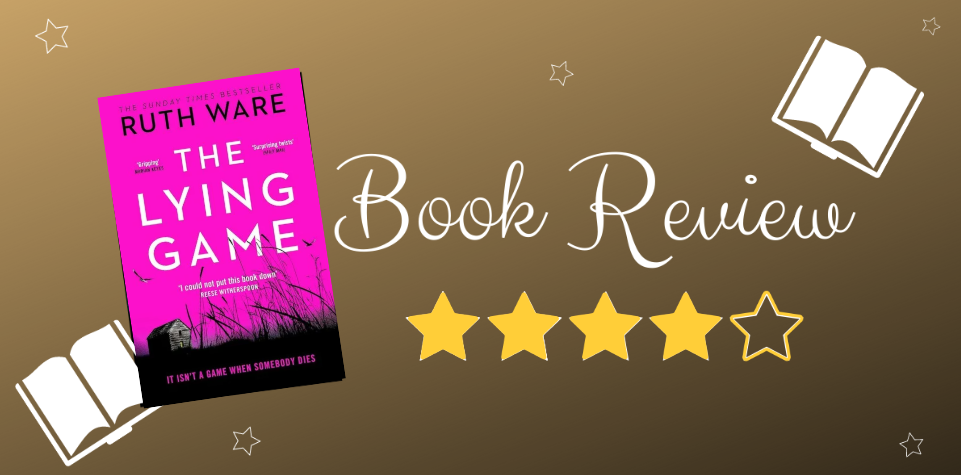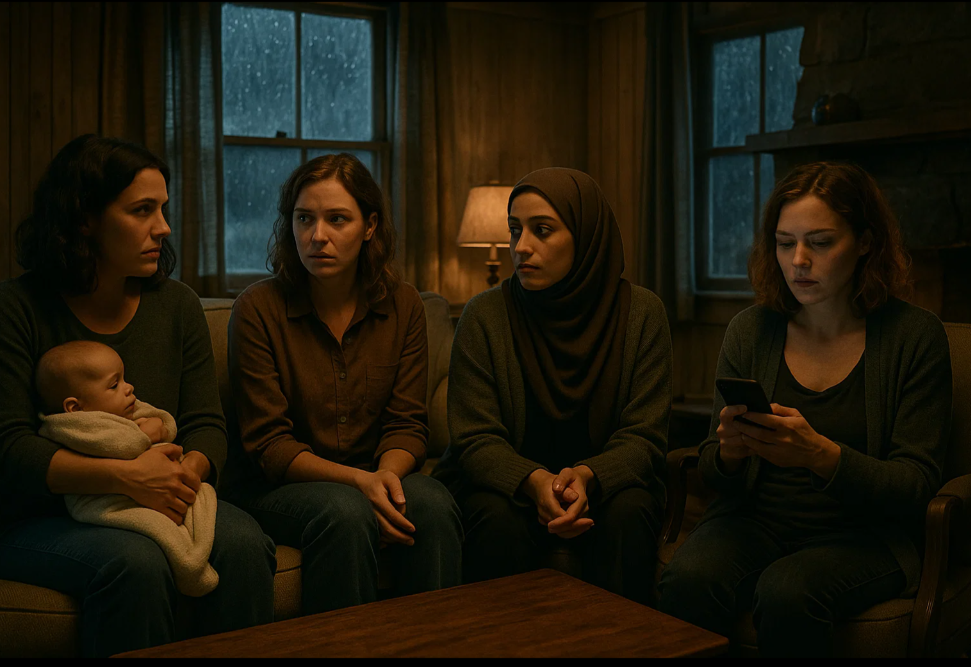
Ruth Ware's 'The Lying Game' is the sort of psychological thriller that gets on top of you without you realizing. It does not hurl twists in your direction immediately. Rather, it lingers, creates a mood, and slowly drags you into the messy web of deceptions that four friends have been keeping under wraps for years. The book isn't merely what they did. It's how far one will go to keep one's secrets, even when the truth is tearing its way out.

The Premise – Four Friends, One Terrible Secret
It all starts in the seaside village of Salten, a village as serene as it is unnerving. On a peaceful June morning, a dog-walking woman stumbles upon something in the water, not a stick, but something ghastly. What she finds shudders the village and produces shockwaves all the way to London, where three women Isa, Fatima, and Thea get a text message from their former schoolfriend, Kate. It contains just three words: "I need you."
Those three words are enough to send Isa packing her bags, her newborn baby, and heading back to Salten. It’s been 17 years since the four girls last saw each other, but the moment Kate calls, they all drop everything and return. Why? Because they share a secret. One buried deep in the mud of the tidal marshes, and if it comes to light, it could destroy all of them.
The girls met years ago at Salten House, a second-rate boarding school near the cliffs of the English Channel. As teenagers, they played what they called The Lying Game. A mischievous competition to tell the most outrageous lies and make others believe them. The rules were simple:
-
Tell a lie.
-
Stick to your story.
-
Don’t get caught.
-
Never lie to each other.
-
Know when to stop lying.
Of course, they never did learn when to quit. Their lies ran wild, and something awful ensued, something that resulted in the death of Kate's father, the school's quirky art teacher Ambrose, and their own expulsion from school. That was it for the game. Or so they believed.
 Image generated using AI
Image generated using AI

The Atmosphere – Where Lies and Water Run Deep
If Ruth Ware does anything well, it's creating atmosphere. None of her books that I have read have failed in thus aspect and this one is no exception either. The backdrop of 'The Lying Game' is more than a background — it's a character in itself. The Reach, the tidal estuary that Kate used to live near, is beautiful and creepy all at the same time. Water lapping at the doorstep at high tide; muddied secrets at low tide that are best unburied.
The narrative moves back and forth between then and now, all from the point of view of Isa. We experience through her the love and intimacy of their adolescence as a friendship, but also the poison that accompanied it. The manipulation, the pressure, the crass desire to fit in.
Ware has this wonderful ability to make the environment mirror the emotional lives of her characters. The ever-present threat of the tide, the remote sea village, the creaking, history-heavy house all of it is damp, heavy, and full of secrets. You can almost smell salt on the breeze and sense the unease hanging over every scene.
It's not one of those action-packed thrillers with loads of action and explosions. No, it's more of a slow burn the kind that gets under your skin. Each chapter makes you feel a little uneasier than the one before it, and before you know it, you're up to your neck in the mystery with no escape. I did not even realize that I was invested in the characters and the story until this one particular scene came up and I sat up straight and actually felt heartbreak.
 Image generated using AI
Image generated using AI

The Characters – Flawed, Real, and Messed Up
At its heart, The Lying Game is a novel about friendship. Complicated, messy, and unbreakable friendship. Isa, Kate, Thea, and Fatima are as different as it's possible to be, yet their bond is created by a shared trauma.
Isa, the narrator, is a 32-year-old lawyer now, with a baby and husband Owen. She's logical, defensive, and horribly anxious. The sort of friend who will instantly leave everything behind for those she loves.
Kate, the quiet and troubled one, remains in Salten and shoulders their burden more than anyone.
Thea is brilliant, bold, and wrestling with her own demons.
Fatima, once a wild child, is now a deeply religious Muslim doctor trying to align her faith with past transgressions.
Their reunion isn't full of hugging and sobbing, it's tense, emotional, and awkward. You can sense how time has altered them, adulthood cracking what once seemed unbreakable. And then they're together again, falling instantly into old patterns of joking, arguing, hiding out with lies as if nothing ever broke.
Perhaps the most surprising thing about this book is that you don't have to be fond of the characters themselves in order to care about them. They're all flawed. Sometimes even infuriating but that's what makes them human. Isa's paranoia, Kate's silence, Thea's temper, and Fatima's guilt are all believable. Their relationship feels real, with layers of love and resentment that Ware gradually strips away.
There's also a more implicit examination of motherhood, religion, and guilt through Isa's account. Her affection for her infant Freya makes her more conflicted and conservative about the lies she's assisting in covering. That internal tug-of-war gives more emotional heft to the novel and makes Isa a more than merely a passive bystander in the mystery. She's a woman attempting to reconcile loyalty to her friends with responsibility to her child.
 Image generated using AI
Image generated using AI

The Verdict – A Haunting and Atmospheric 4-Star Read
I have read a couple of Ruth Ware's other novels such as The Woman in Cabin 10, In a Dark Dark Wood, The Turn of the key, One Perfect Couple and The Death of Mrs. Westaway,(Wow, talk about fangirl 😂😅) and have loved them all. I can happily report that Ware has not disappointed me with this book. There's something about the boarding school environment, the long-buried secrets, and the gradual exposing of fact that totally resonated with me.
It's not flawless, however. The first half's pacing is undeniably slow, and there were points where Isa's narration seemed repetitive. I sometimes wished we got to see more of Thea and Fatima's thoughts rather than everything Isa's nervous mind picks up on. But once the pace quickens, it's a difficult book to put down.
What sets this book apart is the emotional resonance. It's not about unraveling a mystery. It's about the burden of guilt, the delicacy of friendship, and the gray areas between right and wrong. Ware does not bank on shock value and twist cheapness; she creates tension through atmosphere and character. By the time you find out what really happened, you see that the book wasn't about what occurred, it was about living with it.
I also liked that Ware didn't opt for a happily-ever-after. There is no tidy bow that resolves everything. The women's lives continue to be complicated, messy, and human as are their lies.
Ultimately, The Lying Game is a haunting book about loyalty and the lies we tell to keep the people we care about safe. It's raw without being gratuitous, slow without being languid, and emotional without being maudlin.
If you enjoy thrillers that concentrate more on psychological complexity and interpersonal relationships than on sustained action, this one's well worth reading. It's creepy, it's atmospheric, it's well-written — a 4-star read that stays with you long after you put the book down.
 Image generated using AI
Image generated using AI
